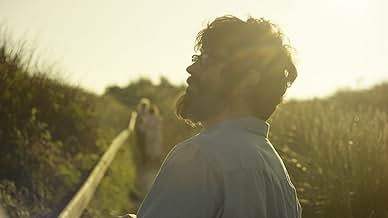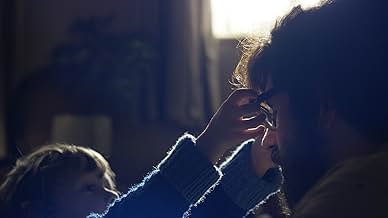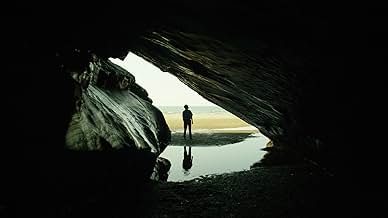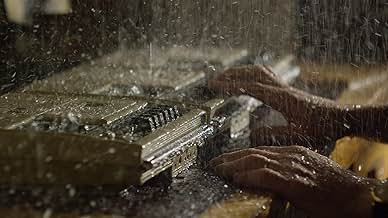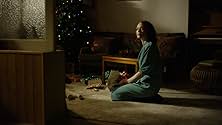Notes on Blindness
- 2016
- 1h 30m
In the summer of 1983, just days before the birth of his first son, writer and theologian John Hull went blind. In order to make sense of the upheaval in his life, he began keeping a diary o... Read allIn the summer of 1983, just days before the birth of his first son, writer and theologian John Hull went blind. In order to make sense of the upheaval in his life, he began keeping a diary on audiocassette. Upon their publication in 1990, Oliver Sacks described the work as 'the m... Read allIn the summer of 1983, just days before the birth of his first son, writer and theologian John Hull went blind. In order to make sense of the upheaval in his life, he began keeping a diary on audiocassette. Upon their publication in 1990, Oliver Sacks described the work as 'the most extraordinary, precise, deep and beautiful account of blindness I have ever read. It i... Read all
- Directors
- Writers
- Stars
- Nominated for 3 BAFTA Awards
- 4 wins & 15 nominations total
- Self
- (voice)
- Self
- (voice)
- John Hull
- (as Dan Skinner)
- Thomas
- (as Sidney Nicholas Warbrick)
- Thomas
- (as Stanley John Warbrick)
- Directors
- Writers
- All cast & crew
- Production, box office & more at IMDbPro
Featured reviews
I was particularly interested in this documentary as I recently met 2 incredible blind musicians and was curious to learn more about blindness. However this is not really a documentary about blindness but more about how this guy personally reacts to his situation. There were some very captivating moments though.
A theology academic named John Hull goes blind due to an illness and has to learn how to adapt to his new life.
The memoirs capture the pure physical and psychological turmoil experienced by John as he experiences this loss of vision, and as he says he battles to live in reality instead of this nostalgic world that his brain is forcing upon him. The dreams he experiences and the way he describes them are beautiful bittersweet torture - as it is his only way of conjuring new images into his world, yet he wakes every morning crestfallen, as he remembers he cannot see, and they were just dreams. One night he dreams he can see his new child that was born after he lost his sight. The way this scene is directed (by Peter Middleton & James Spinney) is as magical as it is emotive.
John expresses to us that he believes part of his brain is dying as a portion of it no longer requires power to process images. He says he feels hungry for stimulation that he just cannot obtain. He also forgets what his wife looks like, which must be pure agony. The frustration of being rendered effectively useless as a parent also weighs heavily on his mind, and some points on the audio tapes you can almost feel the depression that John must be battling.
Dan Renton Skinner does an unbelievable job as the taunted John Hull. His facial expressions transport us into this hell that John must have been in and his performance is one of the most captivating of any portraying an illness / disability that I can remember.
I couldn't wait to splash down a few words about this film in the hope that just 1 or 2 people watch it as a result. That has to be a sign that of its' quality.
Beautiful agony
The film relates the experiences of John Hull, a writer and theologian who found himself losing his sight just before the birth of his first child. To make sense of his experiences he taped his thoughts - first, reflections on the more practical part of his experiences. As someone who needed to read for his work, for example, he went searching for audiobooks of the academic texts he needed. He discovered that it was assumed that 'blind people don't read big books'; so with an army of friends and families, a library of his books was committed to tape.
As time passes he discovers he needs to understand the condition itself, not just the practicalities of it; he'd found himself so busy preparing for and learning to live with blindness that it prevented him for understanding it. He had to learn to think about his condition: 'If I didn't understand, it would defeat me'.
So begins a series of profound reflections which, as a person who has lived with chronic pain for 20 years, I find very resonant and truthful. The person offering a miracle cure (hypnotherapy) who can't accept John's insistence that his eyes won't just grow back; the people who say he doesn't want his sight back because he seems to have adjusted to it. If we complain about our condition, we're classified as defeatist moaners; if we accept it (as we have to), we've given up (especially as Christians). Onlookers seem only to have categories for the heroic overcomer or pathetic victim; there's no room for someone to keep on, keeping on.
The reflection that 'everyday I wake up, I've lost my sight again'; a painfully truthful expression of the reality that every day I wake up, I'm in pain again.
The reflection on why bad things happen to Christians - 'why shouldn't they happen to me?'; a line I've used myself. This struggle seems to be a bigger one for the people around us, then for the sufferers ourselves. As he says 'I don't regard faith as a shield against the normal ups and downs of life'.
His child screams; they rush to discover it's a finger trapped in a door, but even so he's impotent. "The discovery that you're useless is not a nice discovery for a father to make'; how true. I lie some days in pain, aware of my enforced physical absence from my children and my apparent uselessness as a result.
There are many more moments to reflect on, but the surreal and moving conclusion is the most weighty, as John's dreams are shown melting in to on-screen reality. He ends at a point where blindness (chronic illness) either enables in the sufferer some kind of rebirth, or it destroys you. As he says this, him and his family are soaked in rain, a symbolic baptism and regeneration. It's truthful, healing and challenging all at once.
A unique and wonderful film, to be lived with and drunk deep from - especially for chronic illness sufferers and those who travel with them.
In a way, ironically, I think this story would work better as just the audio. The editing done was brilliant, and combine with the atmospheric sounds added, I think it could have been a really good radio story. With an added level that a story about blindness would have no visuals.
Did you know
- TriviaWhen it was shown on British TV, the film was made available with two soundtracks. The first was a "heightened soundtrack" produced by one of Europe's leading sound designers, Joakim Sundström, who created a rich, immersive soundtrack calibrated specifically for blind audiences, using enhanced sound design and additional audio from the characters to guide the audience through the story. The second was a more regular audio described version read by Stephen Mangan.
- Quotes
John M. Hull: What I remember about you most vividly in those years was your amazing practicality. You never expressed regrets. You just got on with the next thing, step by step. The way you did that, I always thought was incredible.
- ConnectionsRemake of Notes on Blindness (2014)
- How long is Notes on Blindness?Powered by Alexa
Details
Box office
- Gross worldwide
- $104,214
- Runtime
- 1h 30m(90 min)
- Color
- Sound mix
- Aspect ratio
- 2.35 : 1



